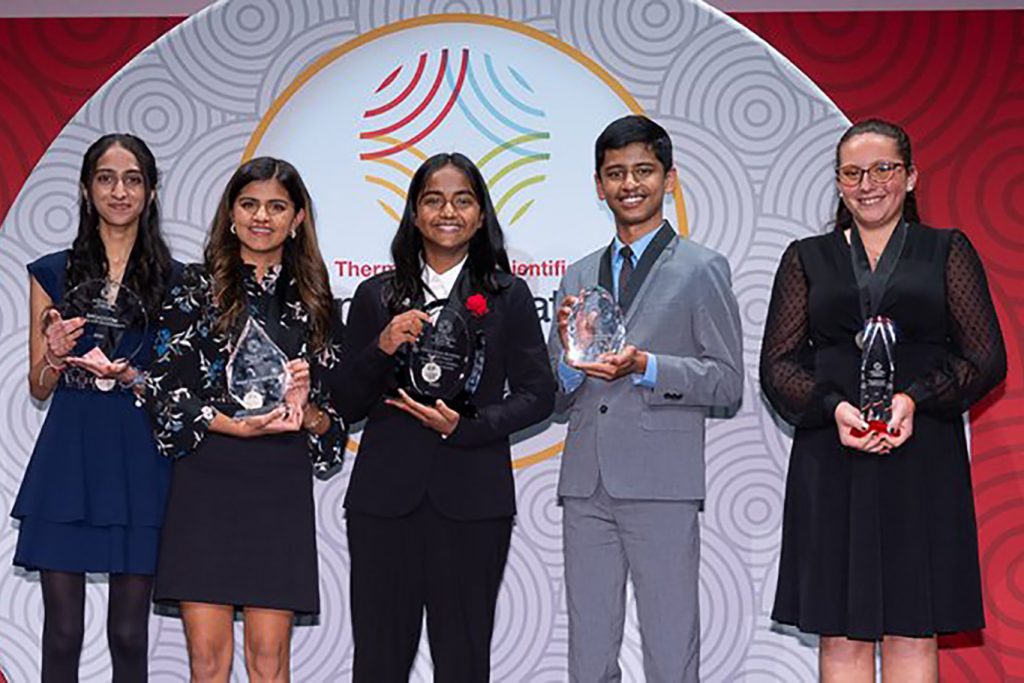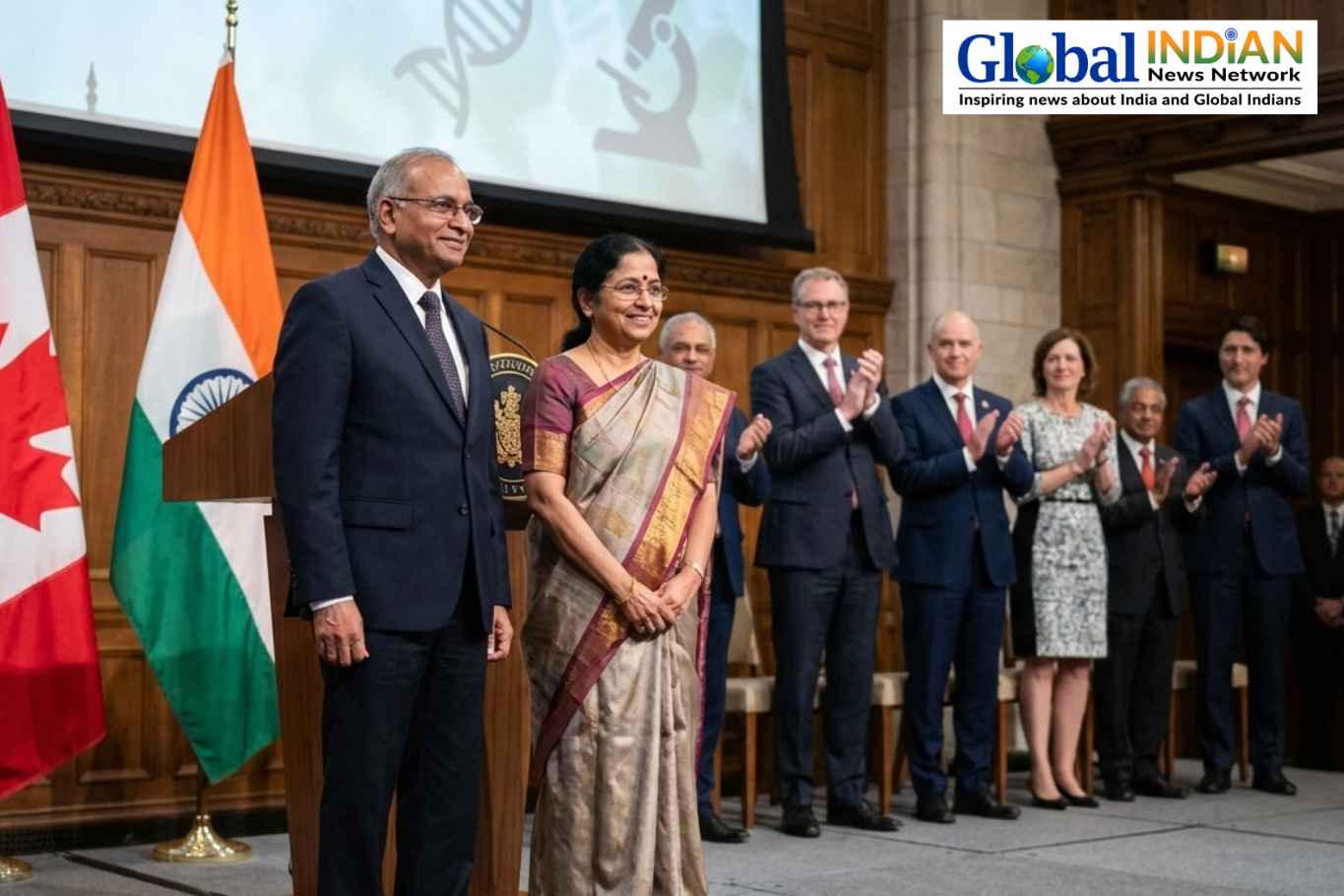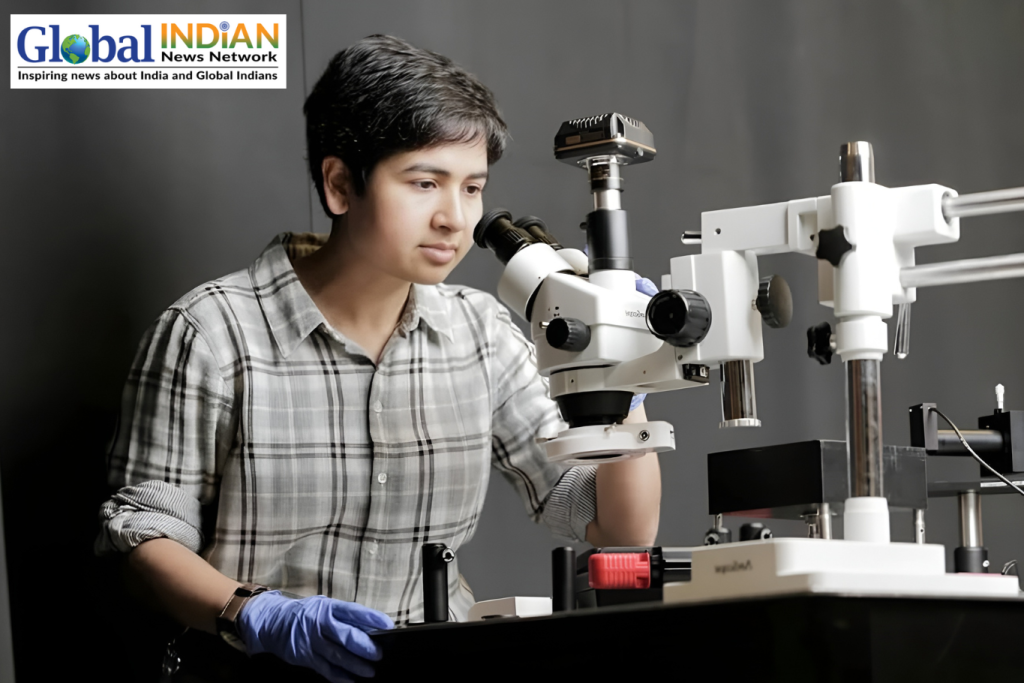 Shanya Gill, a 12-year-old Indian American student from San Jose, California, clinched the prestigious $25,000 Thermo Fisher Scientific ASCEND Award in the inaugural Thermo Fisher Scientific Junior Innovators Challenge. This competition, co-organized by Thermo Fisher Scientific and the Society for Science, showcased the exceptional talents of Indian American students in middle school science, technology, engineering, and mathematics (STEM). Shanya’s remarkable achievement was joined by three other Indian American students who also secured top prizes, underscoring their growing influence in STEM.
Shanya Gill, a 12-year-old Indian American student from San Jose, California, clinched the prestigious $25,000 Thermo Fisher Scientific ASCEND Award in the inaugural Thermo Fisher Scientific Junior Innovators Challenge. This competition, co-organized by Thermo Fisher Scientific and the Society for Science, showcased the exceptional talents of Indian American students in middle school science, technology, engineering, and mathematics (STEM). Shanya’s remarkable achievement was joined by three other Indian American students who also secured top prizes, underscoring their growing influence in STEM.
In addition to these top awards, an impressive six Indian American students claimed first and second place in various STEM categories and secured the coveted Team Award. Their success further validates their significant contributions and potential within the STEM domain.
Shanya’s award-winning project was born from her experience with a nearby restaurant fire in the summer of 2022. Her innovative solution involved connecting an affordable thermal camera to a compact computer, programming it to differentiate between human presence and heat sources, and sending a text message if it detected a heat source with no human presence for a continuous 10-minute period. The system exhibited remarkable accuracy, detecting human presence 98% of the time and heat sources 97% of the time.
The 30 finalists, including Shanya, gathered over $100,000 in awards at The Kennedy Center in Washington, DC, on November 1, marking them as some of the nation’s brightest young minds.
Maya Ajmera, President and CEO of the Society for Science, praised the top winners for their curiosity and contributions to shaping the future. Shanya Gill was honored with the ASCEND Award for her outstanding work on the fire detection system, as well as her exceptional leadership, collaboration, and critical thinking skills during her research project and Finals Week challenges.
The competition also recognized first- and second-place STEM Award winners, including six Indian American students, for their significant potential in science, technology, engineering, and mathematics. First-place awardees received $3,500, second-place winners were granted $2,500 to support their attendance at a STEM summer camp in the United States, and all STEM Award recipients received an iPad.
This remarkable performance by Indian American students in the STEM field underscores their contributions and commitment to scientific exploration and innovation, solidifying the prospects of a promising future in science, technology, engineering, and mathematics.









